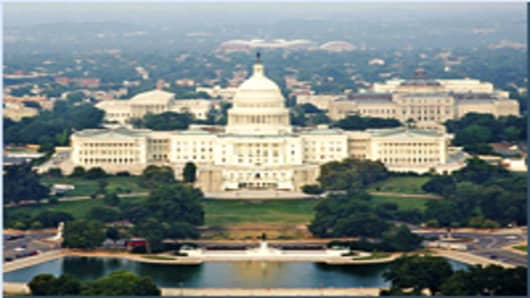What does gridlock in Washington mean, to business and to everyone else? It means avoiding the sacred cows of both parties even if that waters down whatever action government takes.
It means least-common-denominator solutions--or half-solutions--to whatever problem is on the table at the time.
That's what's happening on Pennsylvania Avenue in the alternative minimum tax debate. Both sides agree that roughly 20-million Americans who are not super-rich should be spared an AMT hit on their 2007 tax bills.



